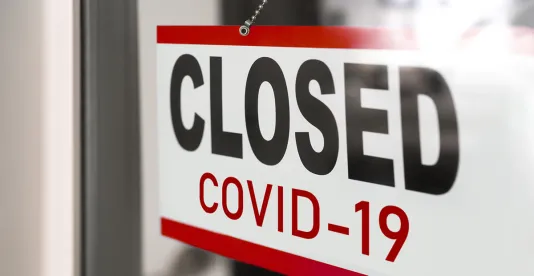The highly anticipated Corporate Insolvency and Governance Bill (the “Bill”) was introduced to the House of Commons yesterday on 20 May 2020. Its aims appear to be simple: safeguard companies and maximise their chances of survival thereby preserving jobs.
Alongside many key measures, the Bill includes temporary provisions to restrict the use of statutory demands and winding up petitions. Perhaps the headline provision relating to winding up petitions issued against companies during the pandemic is that the court will not make a winding up order on such petitions unless it is satisfied that the debt is unpaid for reasons unrelated to COVID-19.
Alongside this blog, we have produced a general overview of the Bill which can be found here.
Statutory Demands and Winding up petitions
A statutory demand is commonly used by creditors to apply pressure on a debtor to pay a debt. Once the written demand is served, the debtor has a three week period to pay the debt. If the outstanding debt is not paid or otherwise settled to the creditor’s satisfaction within this period, the debtor company is then deemed to be unable to pay its debts within the meaning of section 123(1)(a) of the Insolvency Act 1986. Thereafter, winding-up proceedings can ensue against the debtor company even though it is widely accepted that insolvency proceedings should not be used as a debt collection tactic.
Current circumstances
In light of current economic circumstances caused by the coronavirus pandemic, many companies have suffered a significant loss in turnover and profit. They are struggling (or unable) to pay debt, especially rent for commercial premises which is often a company’s biggest overhead cost.
In order to alleviate this pressure, the Government introduced the Coronavirus Act 2020 under which a moratorium was placed on commercial landlords from enforcing the forfeiture of leases for unpaid rent. To circumvent this moratorium on forfeiture, landlords have been using alternative measures, including statutory demands followed by winding-up petitions, to put pressure on their tenants to pay outstanding rent immediately. The new measures introduced under the Bill not only attempt to prevent landlords from undermining the purpose of the Coronavirus Act but creditors in general, from winding up a company whose financial distress has been caused by the pandemic.
Temporary measures
Statutory demands
Under the Bill creditors cannot rely upon an unpaid statutory demand as evidence of inability to pay debts in order to issue a winding-up petition against a company, effectively rendering the statutory demand void for that purpose. The new measure applies to all statutory demands served during the period which;
(a) begins with 1 March 2020, and
(b) ends with 30 June 2020 (or one month after the coming into force of the Bill when enacted, whichever is the later).
A statutory demand is prevented from forming the basis of a winding-up petition presented at any point after 27 April 2020.
Winding up petitions
A petition cannot be presented by a creditor during the period beginning with 27 April 2020 until 30 June 2020 or one month after the coming into force of the Bill, whichever is the later, unless the creditor has reasonable grounds for believing that;
(a) coronavirus has not had a financial effect on the debtor, or
(b) the debtor would have been unable to pay its debts even if coronavirus had had a financial effect on the debtor.
As to the meaning of “financial effect”, it appears to be a low threshold. Coronavirus has a “financial effect” on a debtor if the debtor’s financial position worsens in consequence of, or for reasons relating to, coronavirus. However, there is no clear guidance as to how low this threshold is and how creditors should evidence their findings to the court.
Furthermore, given the court is required to consider whether the debtor’s inability to pay is due to coronavirus, these measures will undoubtedly result in additional court time being taken up for this review.
Rectification
The Bill also includes provisions to rectify situations where, following the announcement of the measure but in advance of its enactment, a petition has been brought under the pre-existing law. In these cases, the court may make an order as it thinks appropriate to restore the position of a company to what is would have been if the petition had not been presented.
Furthermore, if, during the Official Receiver’s investigation into the company’s affairs, he believes that a winding up petition presented on or after 27 April 2020 did not meet the new conditions, he must refer the matter to the court to decide the status of the winding up order and the company wound up. Any actions taken by the official receiver, liquidator or provisional liquidator in respect of a winding up order that should not have been made, will not make them liable in any civil or criminal proceedings.
The Bill and its supporting guidance fails to discuss key issues surrounding the restoration of companies wrongly wound up. Professional costs incurred in a liquidation can be substantial and if an existing winding up order (which was made prior to the Bill) is declared void, it is not clear who (if anyone) will be liable to pay these outstanding costs? It would seem unfair for a petitioning creditor to be penalised for having presented a valid petition in good faith and without knowledge of the new conditions set out in the Bill.
Although the courts have adjourned hearings for a large number of petitions, the effect of making existing orders void appear to have been overlooked during the drafting of the Bill.
Order commencement date
Another key change introduced by the Bill is the change to the date of the commencement of the winding up. The commencement date will now be the date of the winding-up order, rather than the date that the petition was presented. This means that the presentation of a petition will not prevent disposals of the company’s property in the ordinary course of its business (which are currently void under section 127 of the Insolvency Act 1986 unless a validation order has been obtained). This change also impacts the hardening period for security granted/taken and the look back period for insolvency offences.
Removing the threat of winding-up petitions will provide much-needed breathing space and relief for companies. An initial review of the Bill has however highlighted some grey areas that the Government and the courts will need to clarify in order for the new measures to work effectively.
Co-Authored by Simran Basran




 />i
/>i

